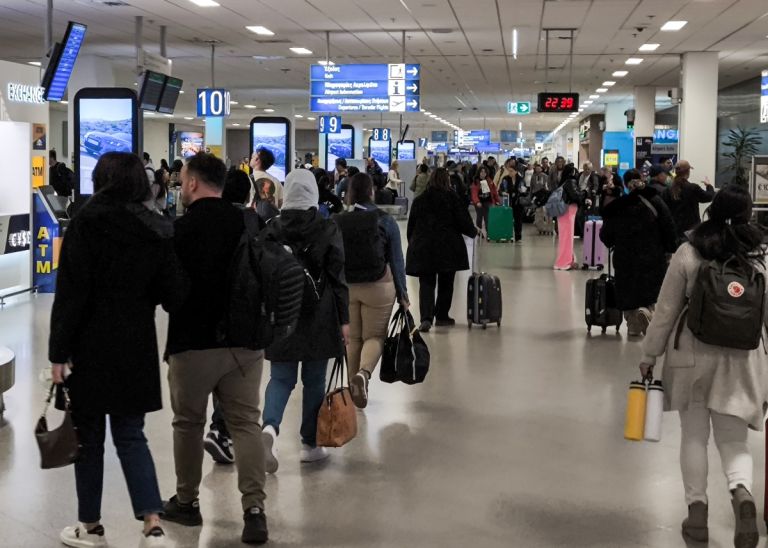Greek Flyers Face New EU Hand Luggage Charges

Πηγή Φωτογραφίας: Eurokinissi (Αρχείου)//Greek Flyers Face New EU Hand Luggage Charges
The European Union has introduced a new regulation, approved on Thursday, June 5, allowing airlines to charge for hand luggage, marking a significant shift for air travelers, including those in Greece.
This decision formalizes a practice already adopted by low-cost carriers like Ryanair, Vueling, EasyJet, Norwegian, and Volotea, which previously faced fines, including €179 million in Spain, for similar charges.
New Hand Luggage Rules
Under the new rules, passengers can bring only one small personal item, such as a shoulder bag or backpack, free of charge, provided it meets safety requirements and fits under the seat in front (maximum dimensions: 40x30x15 cm). Any additional or larger hand luggage will incur fees, which airlines must clearly communicate to avoid unexpected costs at boarding.
Exceptions apply to holders of Golden Cards, Business Class passengers, and those who opt for tickets that include baggage allowances. Fees for luggage exceeding 8 kg typically range from €15 to €60, depending on the route, with airlines already adjusting their summer schedules to offer baggage-inclusive or baggage-free ticket options.
Enhanced Passenger Rights
The EU regulation also strengthens passenger protections, particularly relevant for Greek travelers frequenting European routes. Key updates include:
- Rerouting Rights: Airlines must offer prompt rerouting, including via other carriers or transport modes if suitable. If no rerouting is provided within three hours of a disruption, passengers can arrange their own travel and claim up to 400% of the ticket cost.
- Assistance During Delays: Passengers are entitled to refreshments, food, or accommodation if delays occur. If airlines fail to provide these, passengers can make their own arrangements and seek reimbursement. For tarmac delays exceeding three hours, passengers must be allowed to disembark.
- Compensation for Delays and Cancellations: Compensation for significant delays depends on flight distance: €300 for delays of 4+ hours on intra-EU flights and €500 for delays of 6+ hours on flights over 3,500 km. Airlines cannot deny compensation citing “extraordinary circumstances” unless they prove all reasonable measures were taken. For cancellations notified less than 14 days before departure, passengers are eligible for compensation, and airlines must provide claim forms.
- No-Show Policy Restrictions: The common “no-show” policy, where passengers are denied return flights for missing outbound legs, is now discouraged, with affected passengers entitled to compensation.
Stricter Airline Obligations
Airlines must now provide clear information during booking and handle complaints efficiently. Passengers have six months to file claims or complaints, and airlines must respond with compensation or a detailed response within 14 days.
What’s Next?
The regulation awaits review by the European Parliament, which may approve, amend, or reject it. For Greek travelers, this could mean higher costs for budget flights but stronger protections during disruptions. As airlines adapt, passengers are advised to check baggage policies and their rights before booking.
Source: greek city times
Διαβάστε όλες τις τελευταίες Ειδήσεις από την Ελλάδα και τον Κόσμο






























Το σχόλιο σας